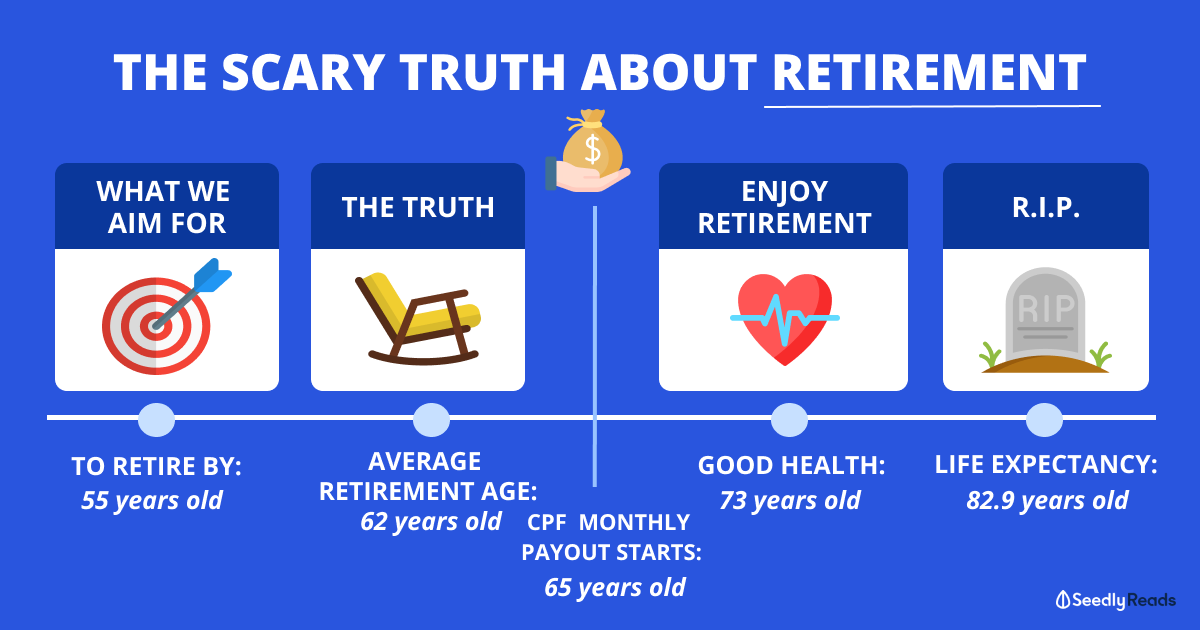Advertisement
Anonymous
23 years old male undergrad, $42k savings but still have study loan liability. Any comments on my fund allocation and investment advice?
Hi guys!
I am 23, male uni undergrad and my main funds are as follows:
- $6k in Bond 3.85%
- $10k in Singlife 2.5%
- $20k in Dash Easyearn 2%
- $6k in SC Jumpstart 1%
I do not have any investments in equities/ETFs/robos. Considering the fact that a large portion of these funds will be used to pay my study loan, would appreciate advice on my current fund allocation and if I should invest in the market.
(I am doing some part time tutoring to earn some extra side income while studying.)
10
Discussion (10)
Learn how to style your text

Reply
Save
Hello Everyone,
I want to publicly thank Alliance Digital Hack, a group of professional private investigator and a certified expert in Bitcoin Recovery Services. Their assistance in helping me recover all the money I lost to fraud was top notch and unbelievable. An online manipulation artist who represented themselves as knowledgeable and experienced in the field of Crypto investments conned my wife and myself. My $356,000 worth of funds were put into cryptocurrency. I was left helpless after the fraud tricked us and had to spend hours looking for a Crypto recovery service to get my money back. The specialist I found was Alliance Digital Hack. I just had to be patient after describing my situation to the expert and all of my money was returned to my wallet in less than 72 hours. Thank you Alliance Digital Hack for your excellent assistance in getting my money back. If you are interested in hiring there services, they can be reached through their contact details below.
Email: [email protected]
Whatsapp: +44 7452 247277 thank me later.

Reply
Save
Ow Jie Liang
19 Aug 2020
Student Ambassador 2020/21 at Seedly
First off, congrats! You have a sizeable amount of savings that can be used to substantially pay off the entire student loan or a sizeable amount of it (to prevent the 4.75% p.a. loan interest rate from snowballing). Let's just say that I "inherited" your situation and I am now seeking to optimise whatever I have that you listed above in this question. I will recommend and state below the following steps and the things that I would do:
Based on just numbers alone, 1. & 2. sounds fine, although I may wish to find out more about the bonds and how it yields 3.85% as well as if there is a min. holding period for it
Next, I would allocate my singlife as my "emergency" fund. It is nicely rolling at 2.5% p.a. with an amount of 10,000 dollars.
Then, I would look at my investment horizon and consider a few things:
when do I need to pay the loan?
how much do I wish to use to pay the loan?
what are the risks to reward ratio if I choose not to pay the loan (accum. @ 4.75% p.a. on a daily basis some more) compared to any investment I may shortlist/choose to get into
Simply put (as i do not understand your full background and accompanying circumstances), a generic and "fast" way out would, for me, be to continue putting this sum of money where it is (as i assume you are graduating at 24 years old) and then pay off the student loan in one shot before the interest kicks in
Only then, I would assess my remaining capital and seek to deploy them in investment vehicles as I would have a good time horizon for gains to actualise.
Reply
Save
Hi, I'm 24 this year and I was at your situation too, perhaps I'll share with you what I'd do if I was you.
Have 6 months of emergency fund (Eg: if you spend $400 a month, then make sure at least $2,400 remain in the bank account), and save in Singlife for the 2.5% interst rate
I'd take as much time as possible to learn investment. If you're interested in stock picking, then read some books or take some courses that teach you how to evaluate and pick stocks.
Save 30% of your salary, another 30% to pay off your student loan (yes, 30%, because the interest rate is disgusting you have 42k savings for your disposal - mainly to invest)
Remain invested while you're still learning. There are a few beginners friendly ways to start your investment journey
4.1 Regular Savings Plan - you can try with OCBC Blue Chips Plan, FSMOne RSP, POSB Invest Saver. I'd go with FSMOne due to their lower fee. This is a good way to start your investment journey with as little as $100 a month and continue to Dollar Cost Average
4.2 Robo-advisor - there are many robo-advisors in Singapore such as StashAway, Kristal.AI, EndowUs, MoneyOwl, Syfe etc. You can read online reviews and decide on your own. I'm personally using StashAway.
Once you have accumulated enough knowledge to get started, start picking stocks and invest in them. When you're young, I'd advise you to focus on growth stocks with smaller market capitalisation as they have a higher growth potential. After you accumulated sufficient capital from the growth stocks, you can diversify into more stable ones such as blue chips stocks, dividend stocks and REITs.
Focus on increasing your income, take on a side hustle, improve your skillset, start a small online business, whatever. Increasing income is the best way to accumulate capital.
All the best, stay safe, stay healthy and stay invested!
Reply
Save
You have done well.
Take small steps in understanding your financial goals.
A good question is to ...
Read 6 other comments with a Seedly account
You will also enjoy exclusive benefits and get access to members only features.
Sign up or login with an email here
Write your thoughts
Related Articles
Related Posts
Related Products

Standard Chartered JumpStart Account
4.8
785 Reviews
Maximum Interest: 2.50% p.a. for balances up to S$50,000
INTEREST RATES
$0
MIN. INITIAL DEPOSIT
$0
MIN. AVG DAILY BALANCE

DBS/POSB Multiplier Account
4.3
329 Reviews

OCBC FRANK Account
4.7
213 Reviews
Related Posts
Advertisement










I engaged Coin Reclaim service after an investment scheme blocked my withdrawals. Their due diligence and communication were professional throughout. They provided transaction tracing, recovery options, and clear documentation useful for legal follow-up. I recommend contacting them if you need structured, step-by-step assistance rather than quick promises, on Watsp: +1 (360) 831-8690 and coinreclaimservice AT gmail.com